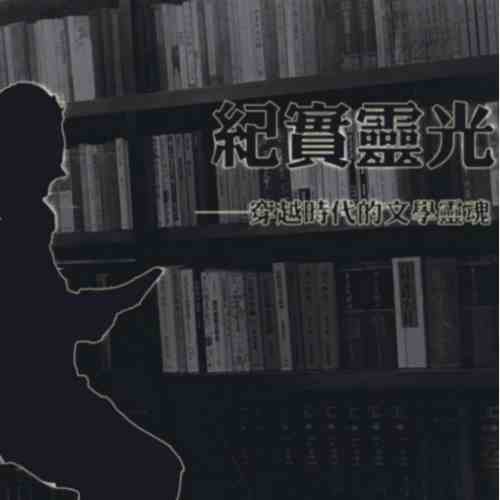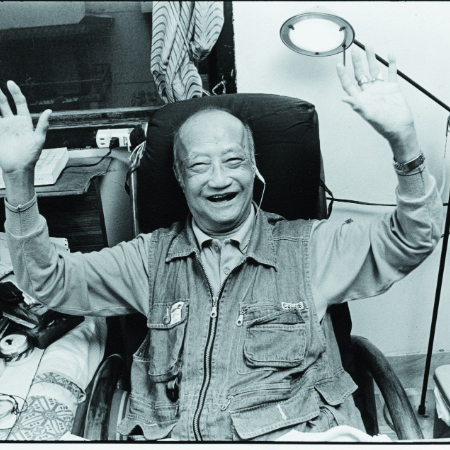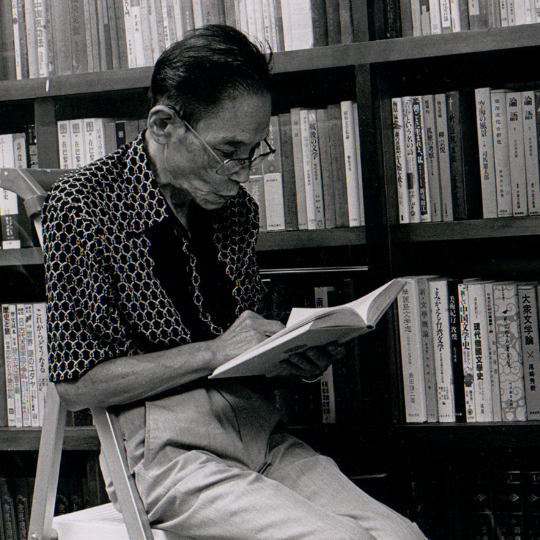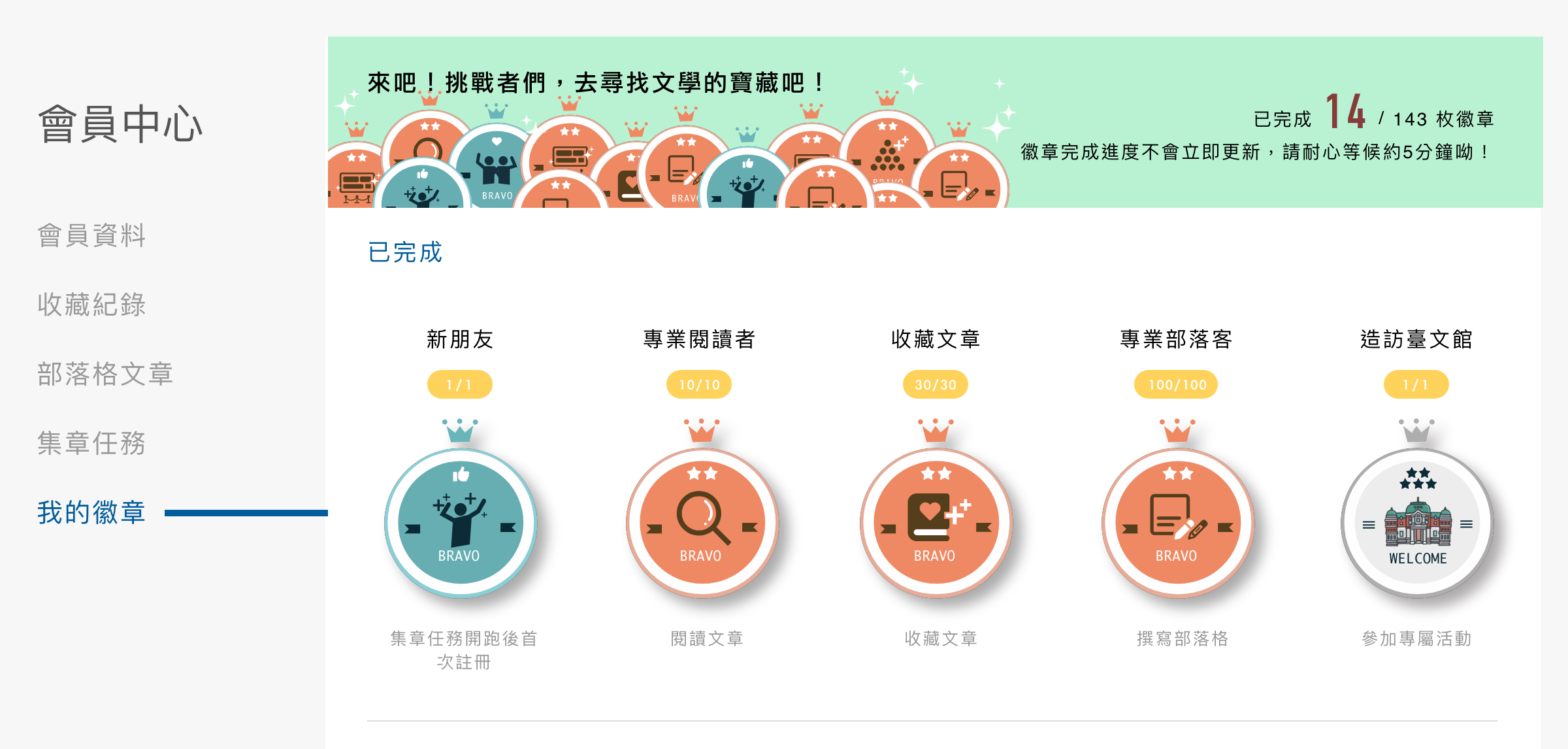A bird has forgotten its language
It has forgotten to cry
Proud and alone It flies up and high, as unattainable as the Sun
Away from its nest
Away from its parents and siblings
Even abandoning its ancestry
As if it could only feel content when far away
Like a lost child reluctant to go home
Its heart hardens, losing everything
It loses its customs and ethics
It loses its traditional language
The bird cannot sing anymore, nothing
Its tongue has been burnt by the Sun
What a proud bird
It has forgotten its language
A sad bird it is
——Written by Wu Yung-fu during the Japanese Rule.
Translated from the Japanese into Chinese
by Chen Chien-wu Published in the 50th issue of Li, a magazine.
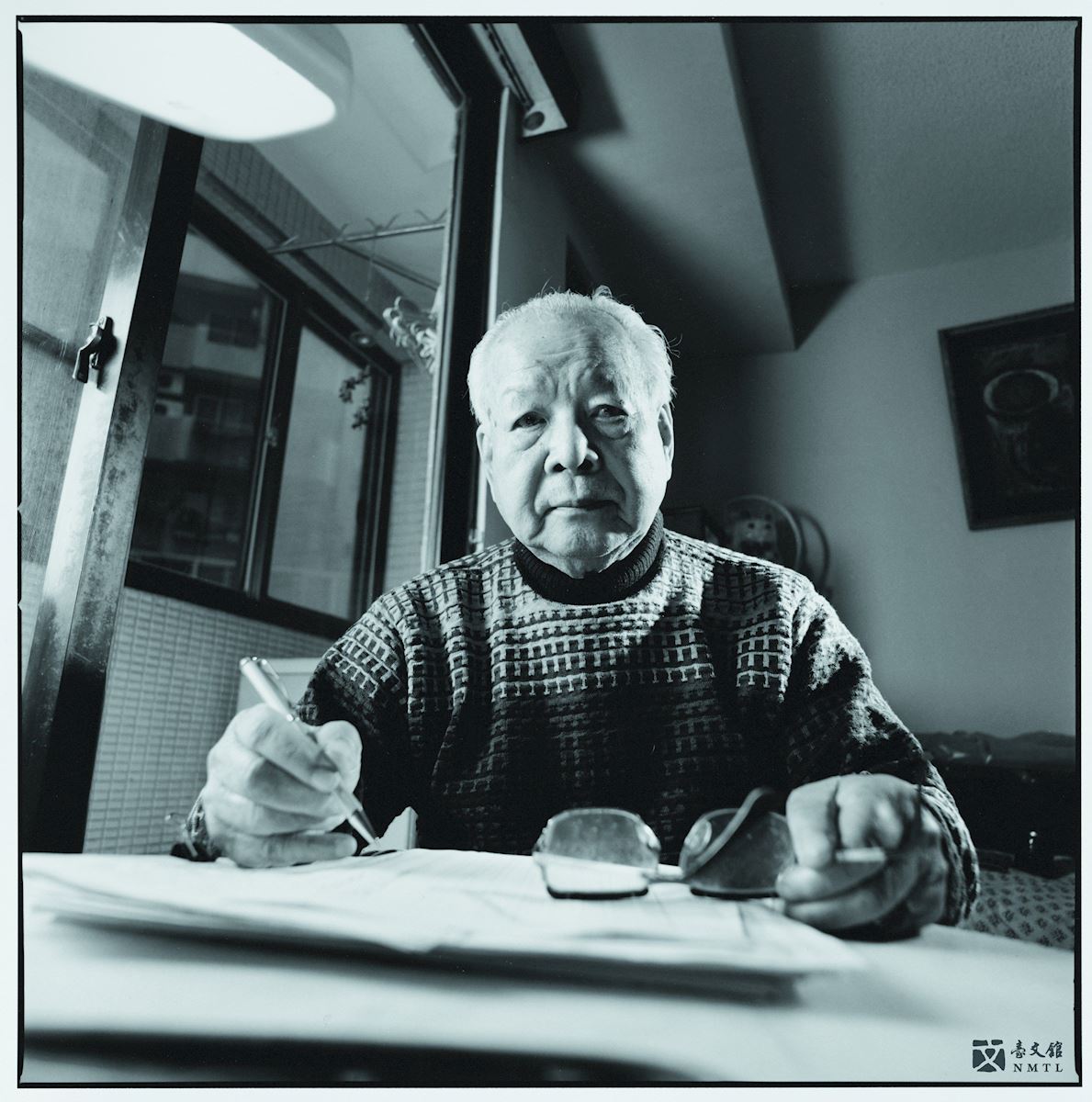
▒ Wu Yung-fu ▒
In this bust photo, Wu had short hair. He held a pen in one hand and a pair of glasses in another. Wu’s residence on Anhe Road, Taipei City, January 2003.(Provided by Lin Po-Liang)
.jpg)
.jpg)
📖 “The Series of Novel Volumes of Wu Yung-fu” & “An Anthology of Taiwanese Poets: Wu Yung-fu Collection”
Introduction
Born in Puli, Nantou, Wu Yung-fu (1913-2008) had a style name of Yungchou and a penname of Tien Tsi-hao. In 1932, he enrolled in the Department of Arts, Meiji University. In the next year in Tokyo, he and a few literary friends founded the Taiwan Fine Art Research Society and published Formosa, a literary magazine. After graduating from university in 1935, Wu returned to Taiwan.
He joined the Taiwan Culture and Art Association and participated in the publishing of the association’s magazine, Culture and Art of Taiwan. In the same year, he became a reporter for News Taiwan. After the war, he worked in the Taichung City Government as a secretary, before switching to other posts such as the general manager of China Chemical & Pharmaceutical and vice president of Shinkong Insurance, among others.
Again, Wu led the publishing of Culture and Art of Taiwan, and he was a member of the Taipei Singing Society and Li Poetry Club. He was the president of Wu Yung-fu Culture Foundation. Complete Works of Wu Yung-fu contains more than 20 volumes. From the Japanese Rule till after the war, Wu Yung-fu enjoyed a lasting literary career. Contributing immensely to the rebuilding of a Taiwanese identity in the literary circle and literary movements, he was hailed as “the literary laureate of Formosa.”
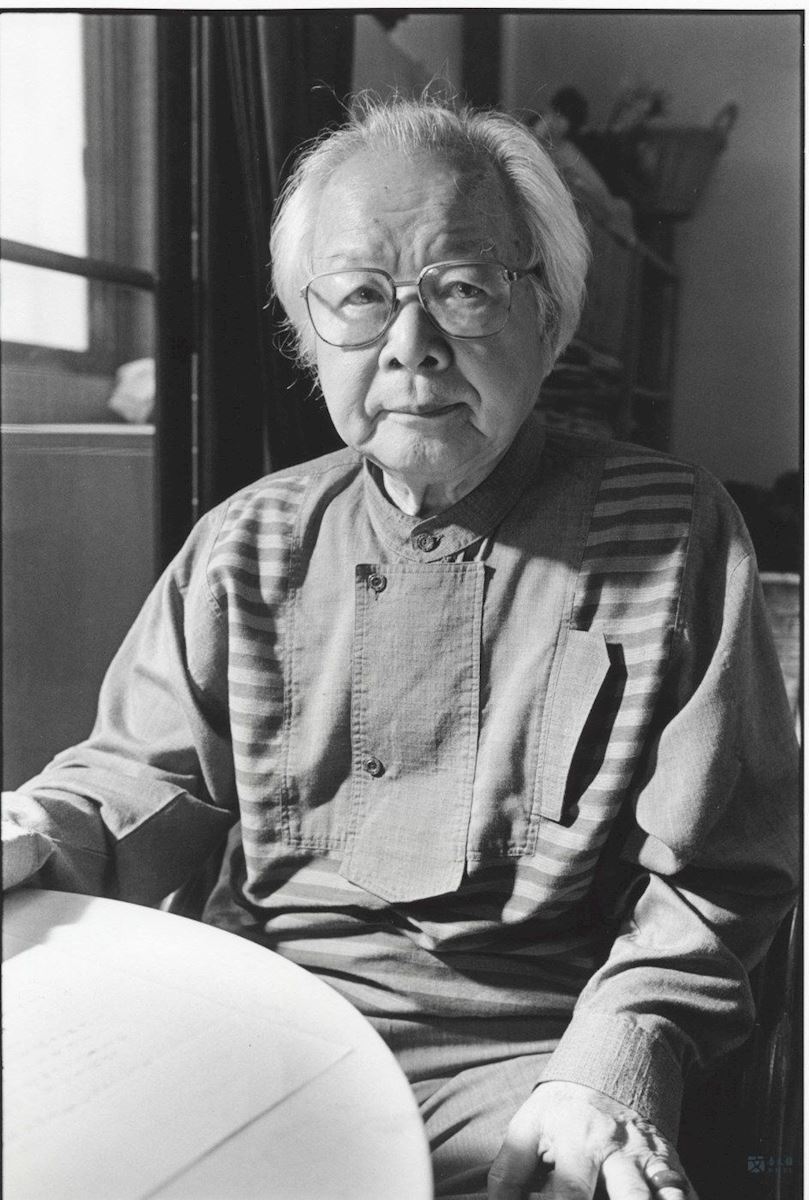
Wu Yung-fu
In this bust photo, Wu sat beside a round table by a French window in his residence on Anhe Road, Taipei City, in June 1998, without a pen in his hands.(Provided by Lin Po-Liang)
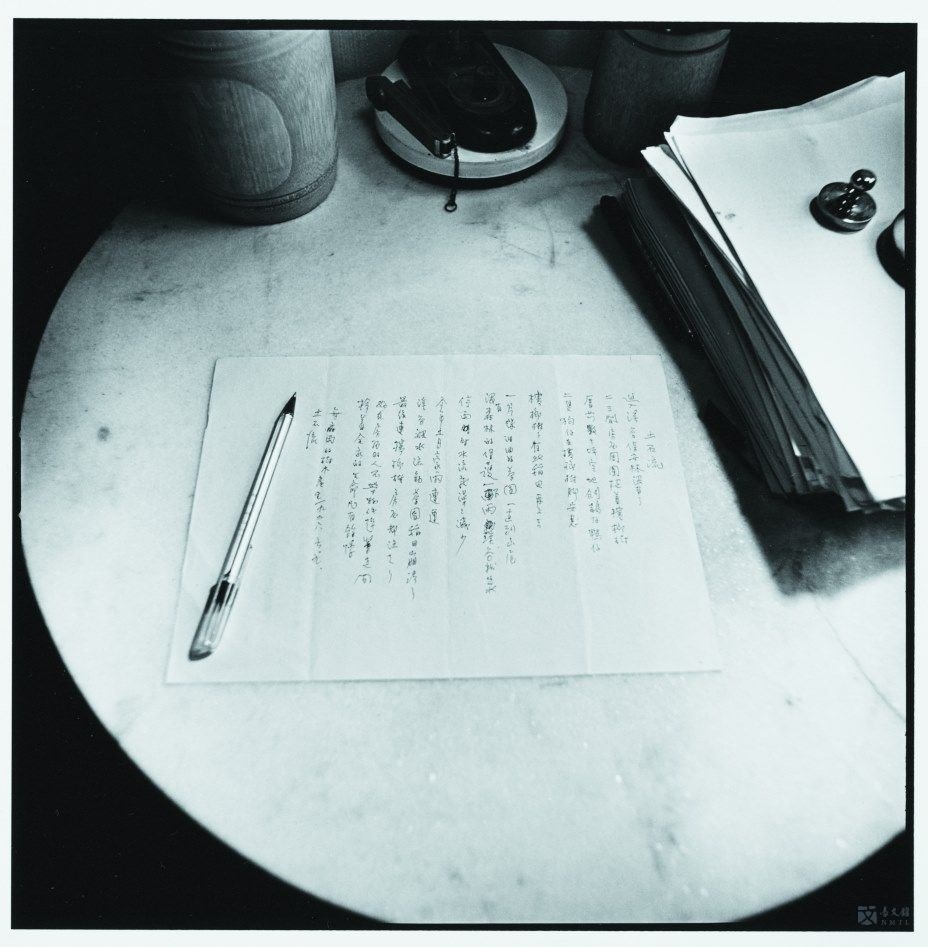
Close-up of Wu Yung-fu’s handwritings.
Close-up of the manuscript of “Landslide,” Wu’s residence on Anhe Road, Taipei City, January 2003.(Provided by Lin Po-Liang)
🎬 “The Poet” by Wu Yung-fu.
Manuscript
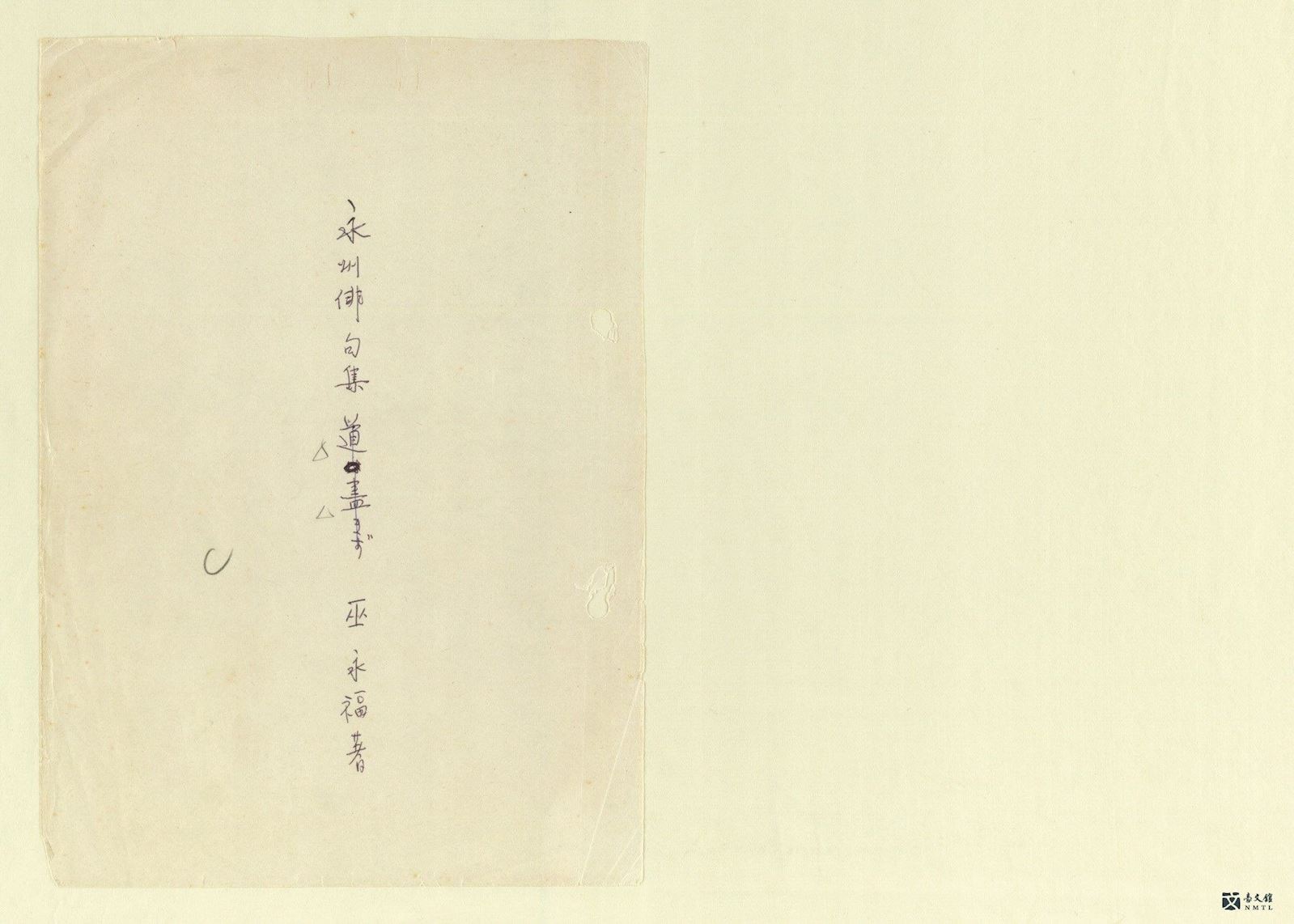

.jpg)
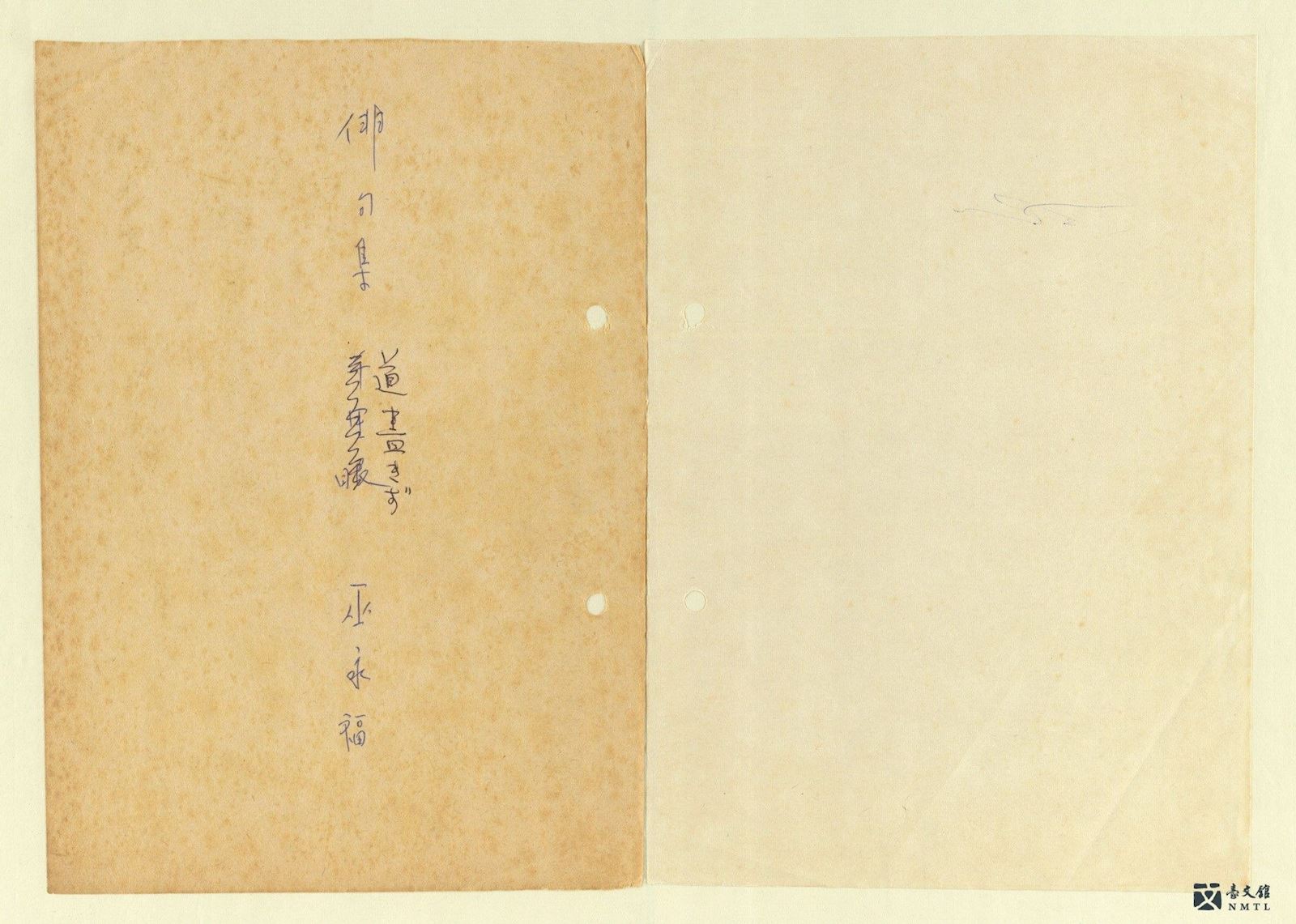
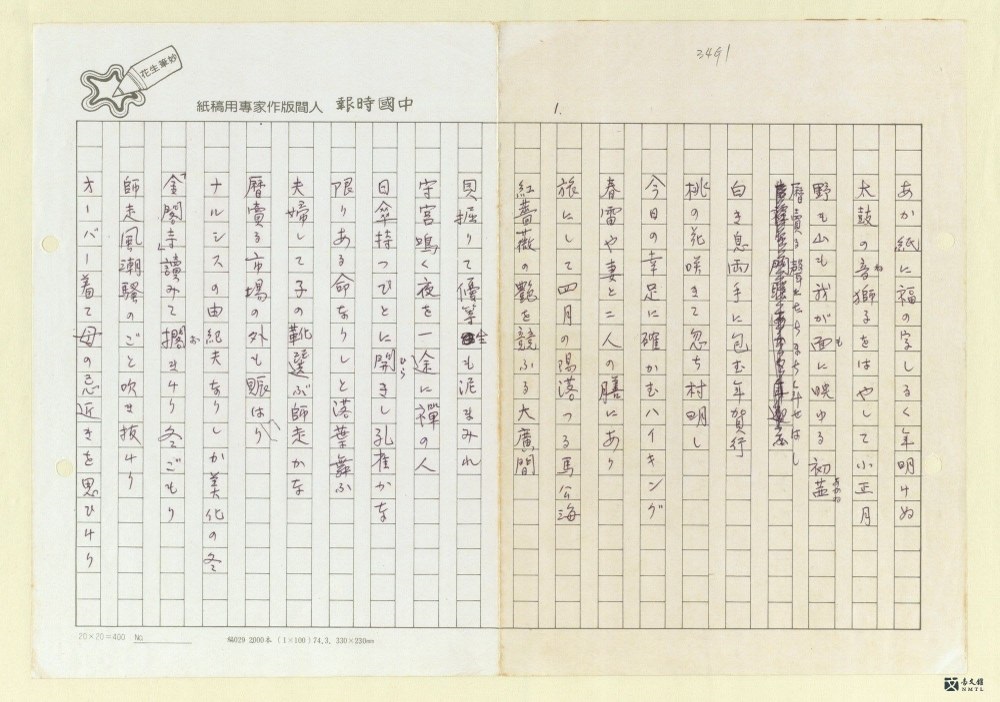
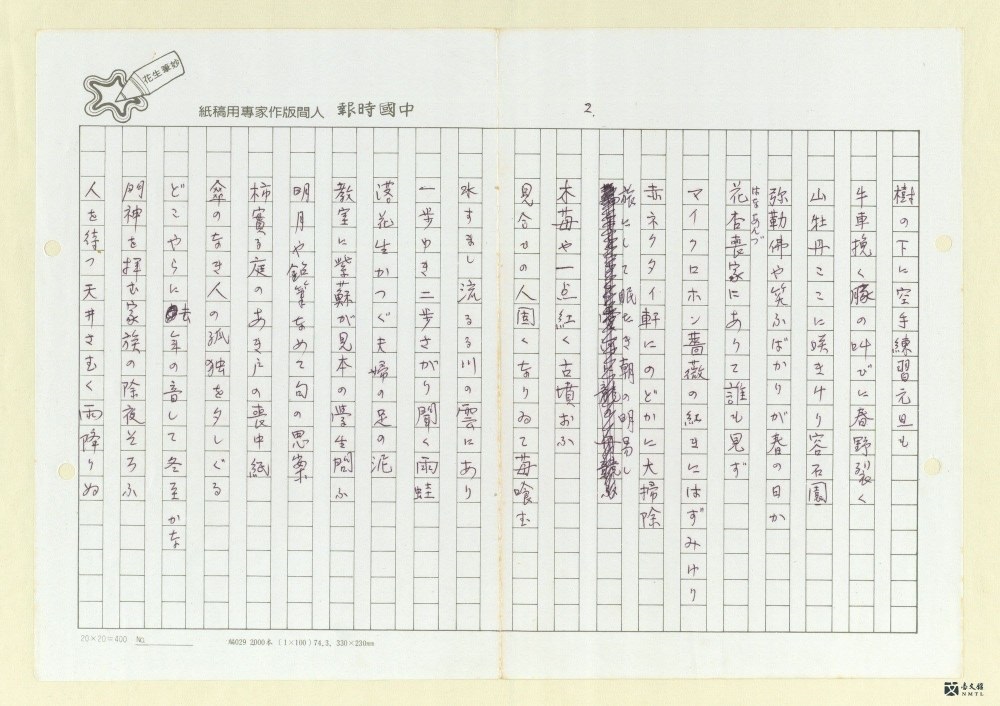
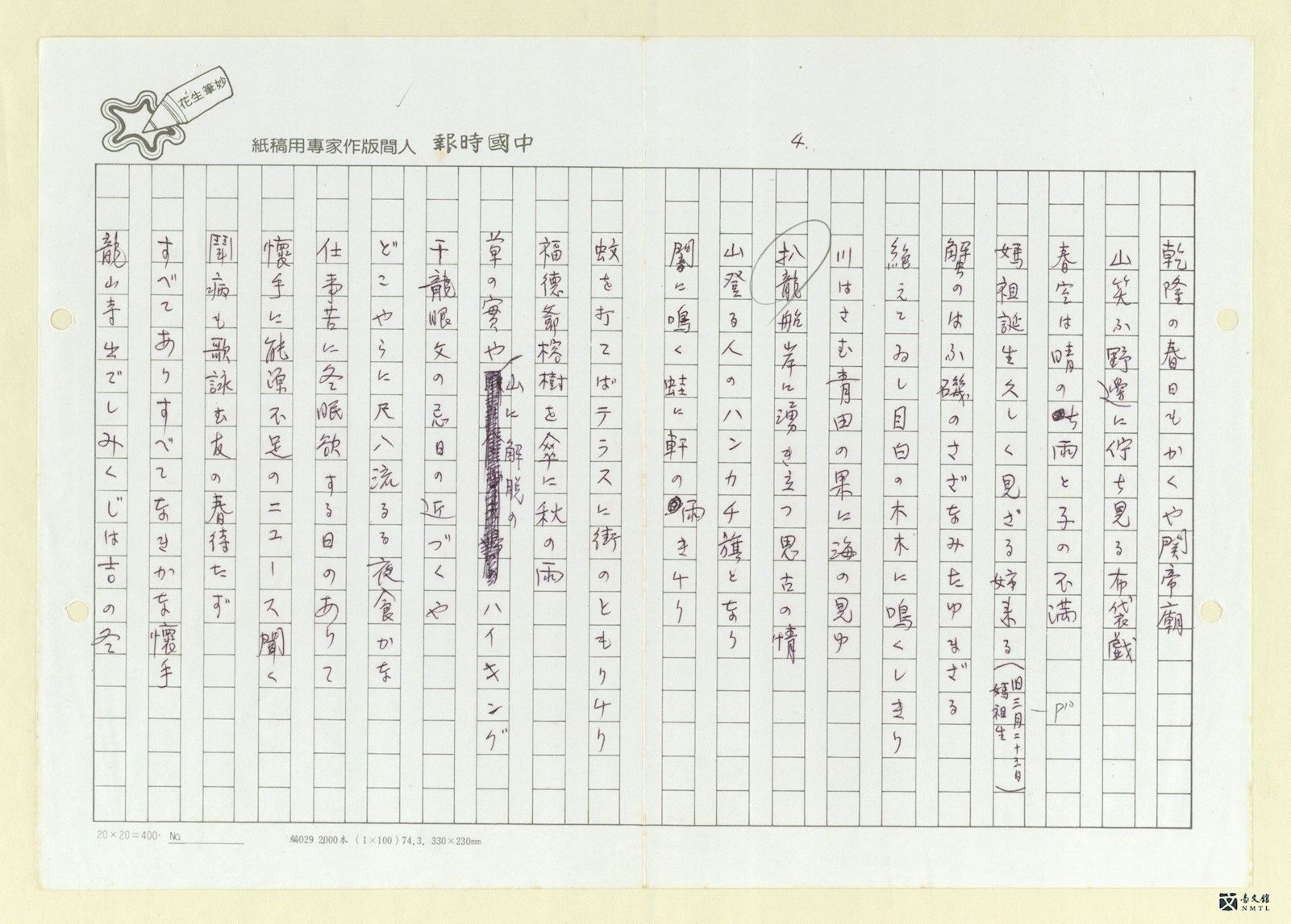
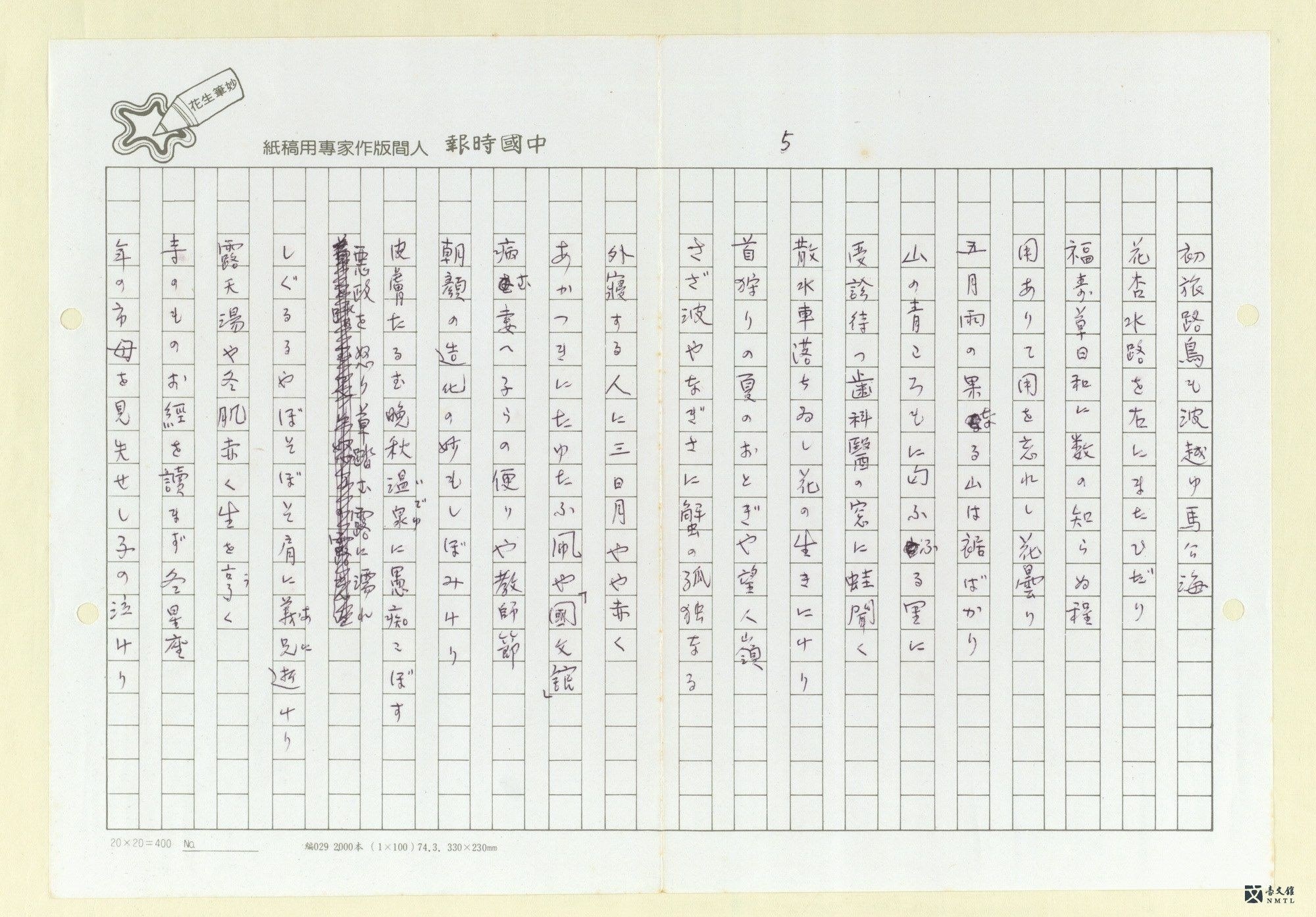
► Haiku by Yungchou-Endless Road (copy).
Haiku by Yungchou-Endless Road, written by Wu Yung-fu and published in 1986.(Donated by Shen Ming-chin / Collected by National Museum of Taiwan Literature)
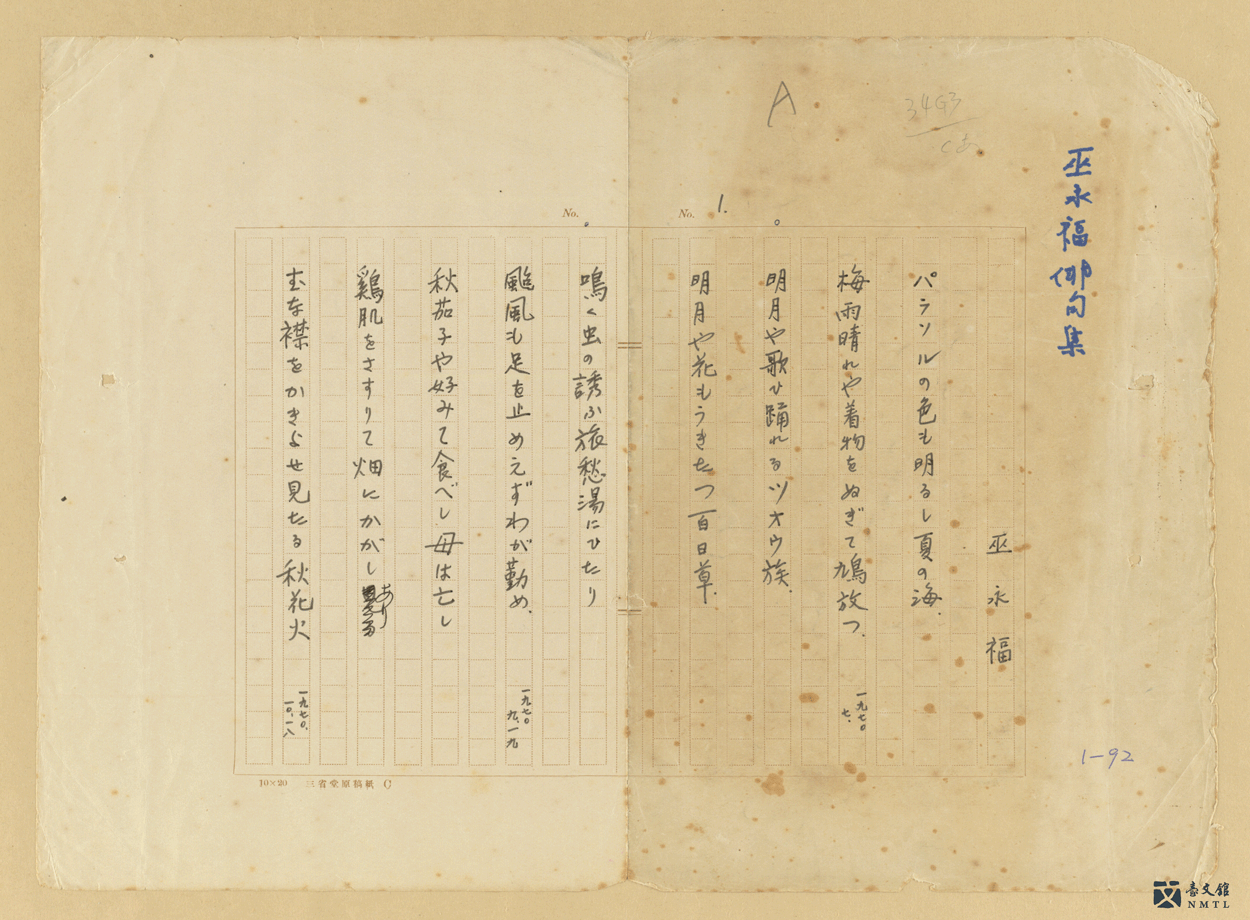
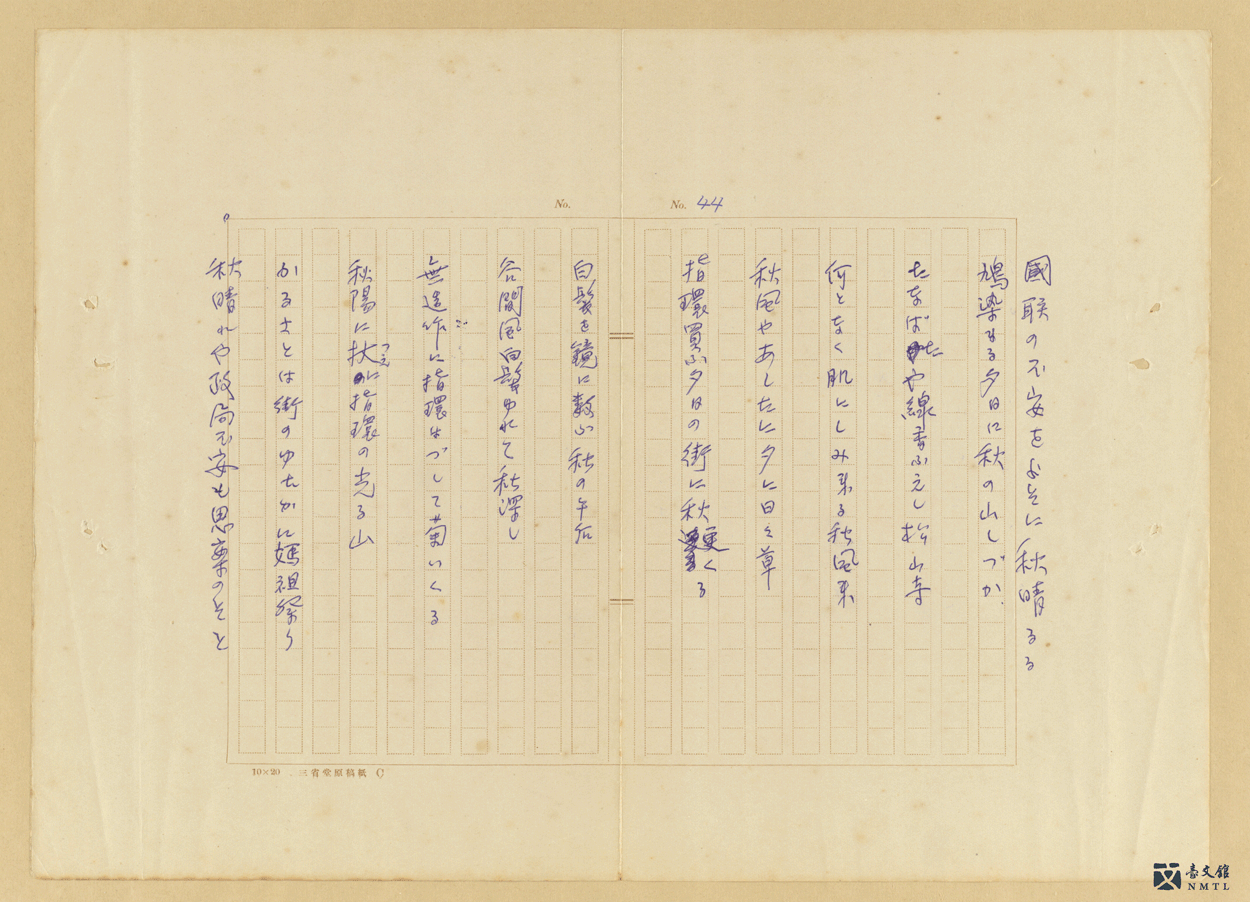
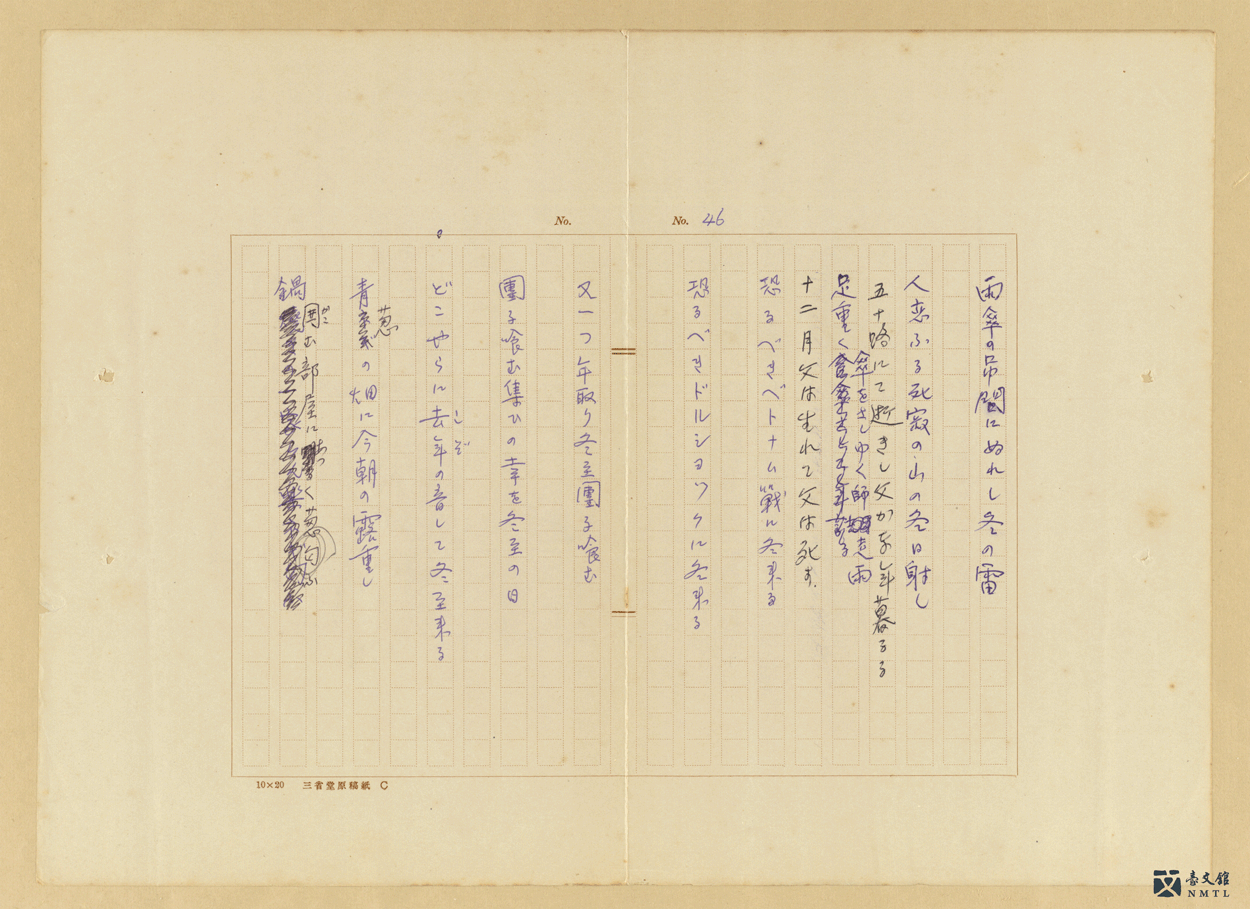
► Haiku manuscripts by Wu Yung-fu.
It mainly includes works from the post-1970s.Topics range from an appreciation of the four seasons, the customs of Taiwan, and expression of feelings towards the events of the era and the international situations in the 1970s (such as the changes in the United Nations, the Vietnam War, the Atomic Bomb Memorial Day in Japan, etc.).(Donated by Shen Ming-chin / Collected by National Museum of Taiwan Literature)
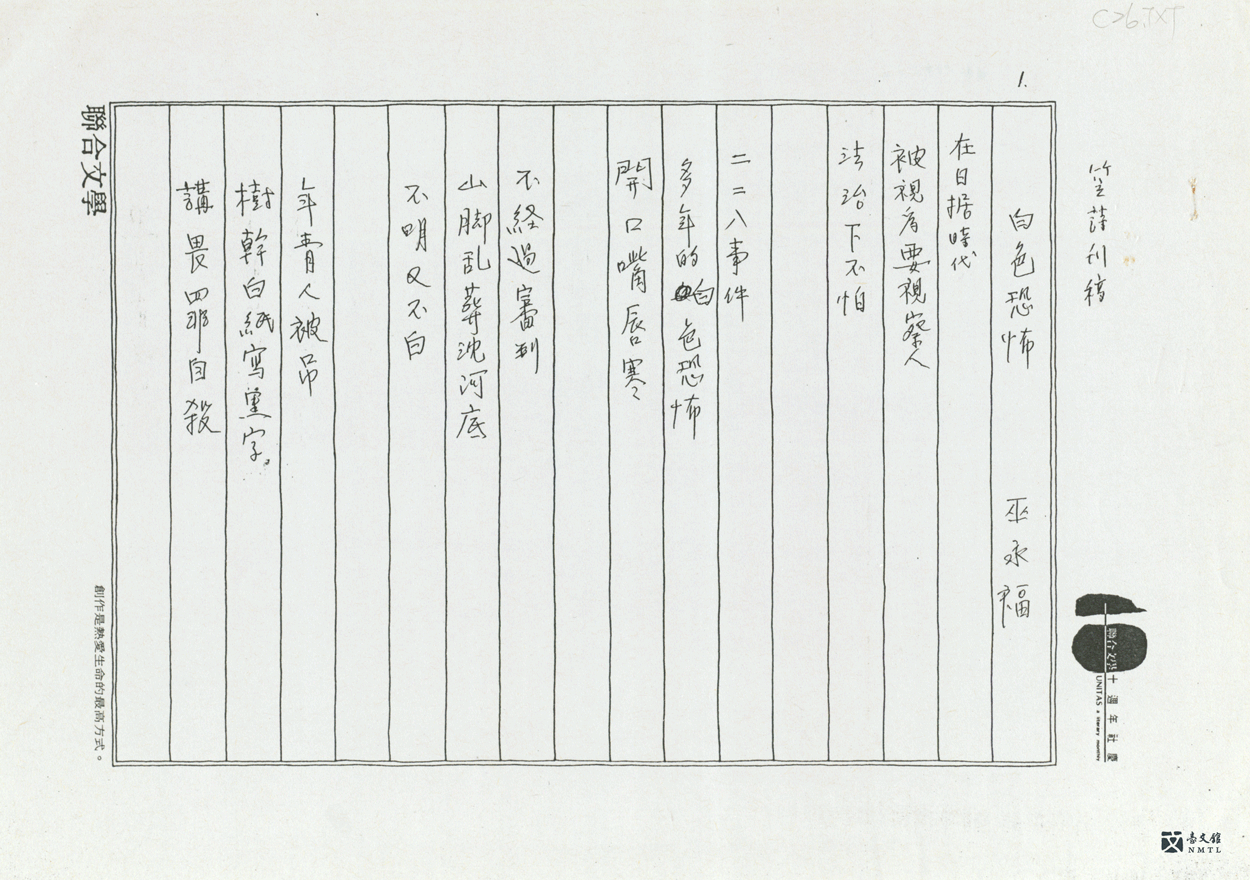
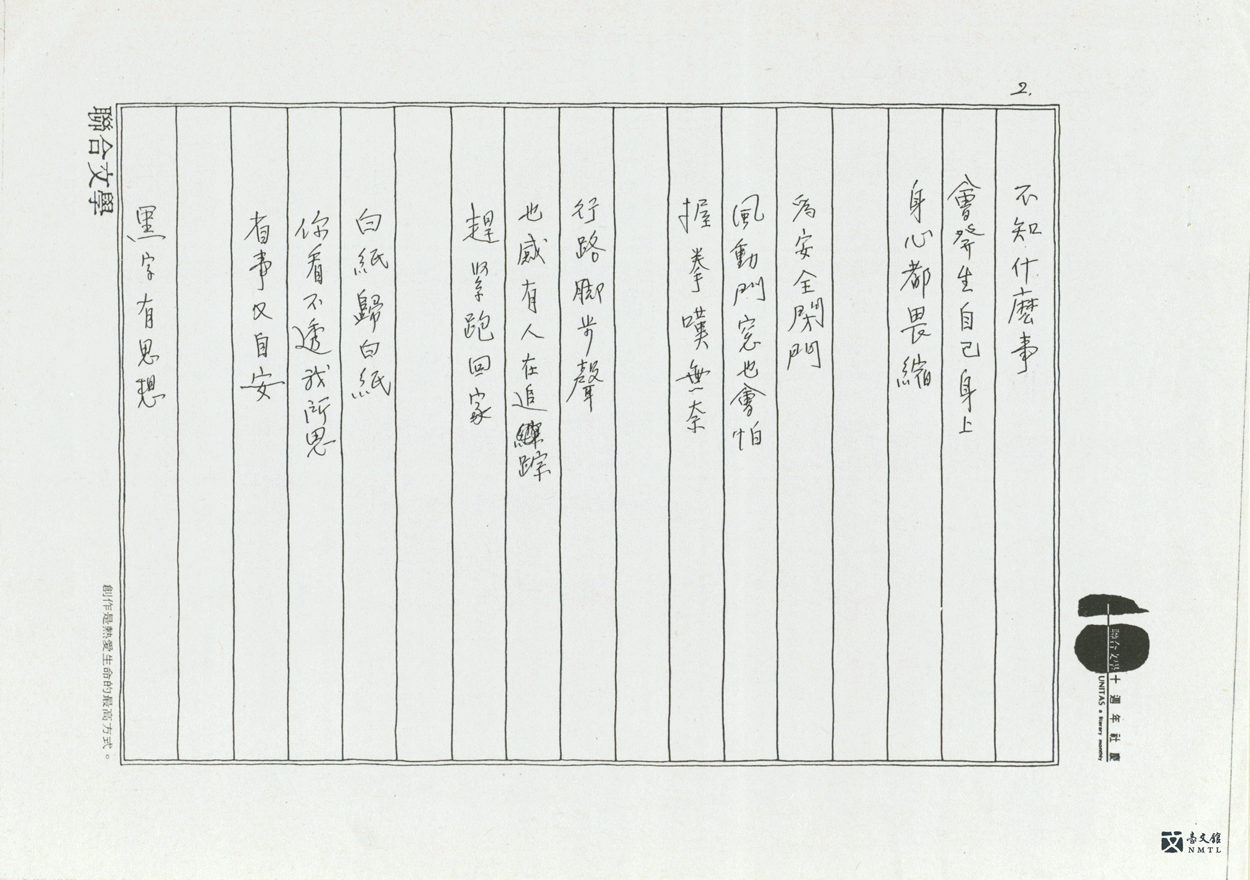
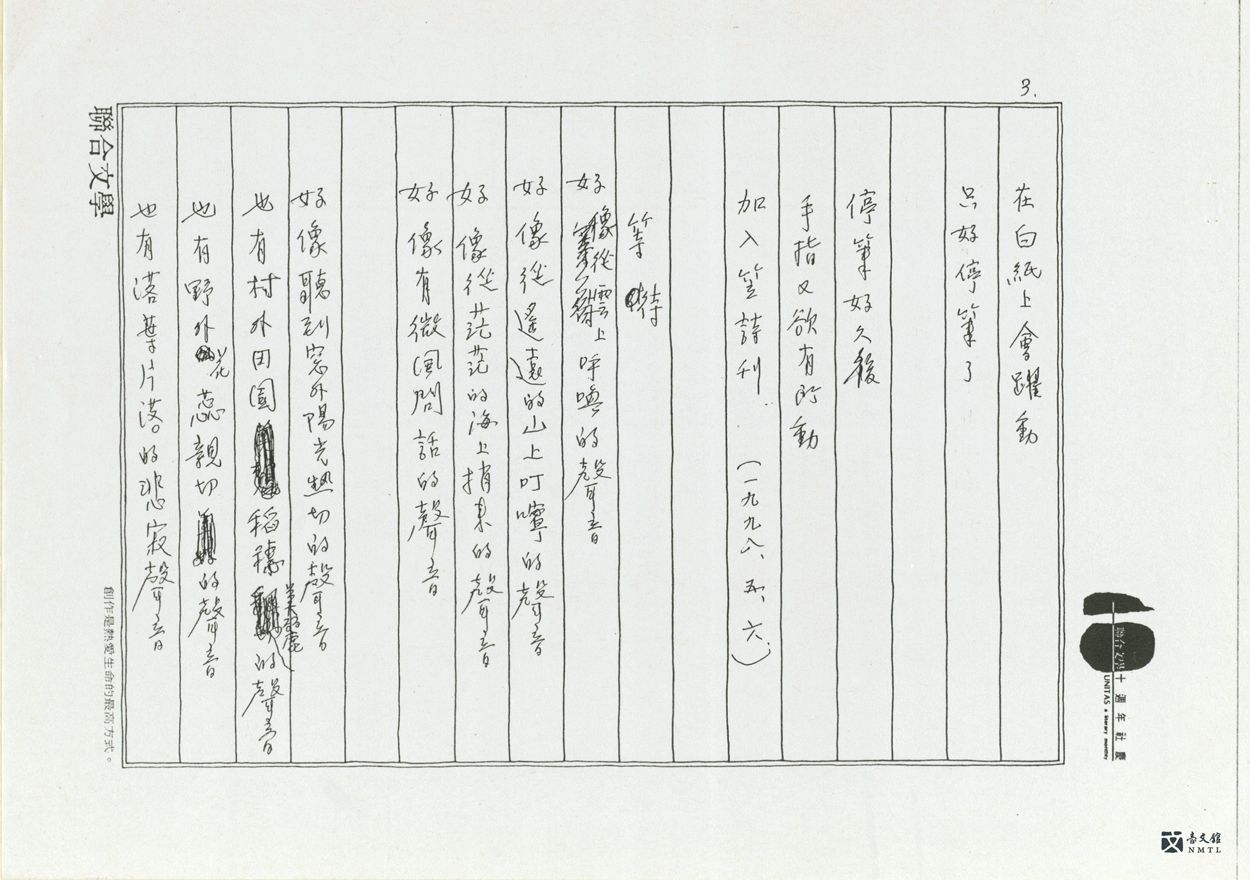
► "White Terror" (copy).
This poem was written by Wu Yung-fu in May 1998, describing how he had stopped producing creative writing after the 228 Incident and the White Terror; he waited for democratic liberation to join Li Poetry.(Donated by Shen Ming-chin / Collected by National Museum of Taiwan Literature)
